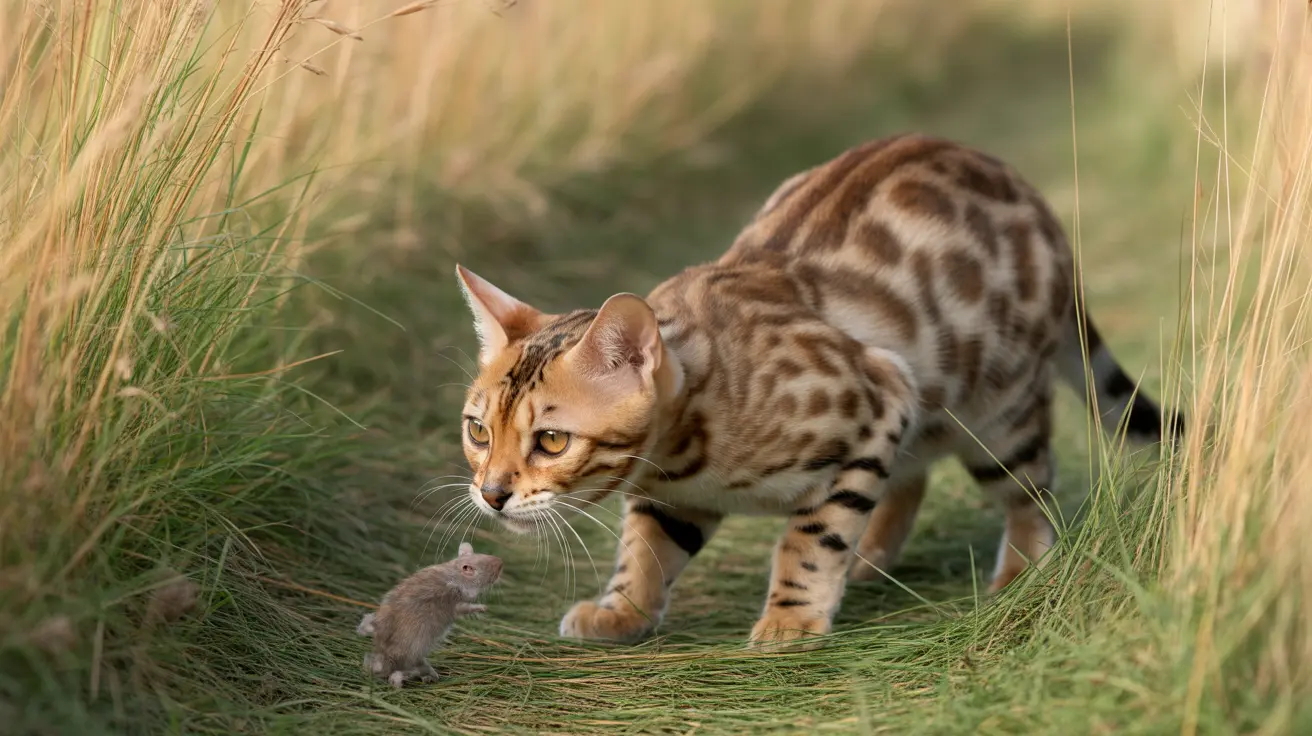The Evolutionary Drive Behind Cats Eating Mice
Cats are obligate carnivores whose ancestors relied heavily on hunting small prey for survival. This evolutionary heritage has equipped modern cats with specialized features perfect for catching mice: razor-sharp claws, excellent night vision, sensitive whiskers, and precisely tuned hearing that can detect even the smallest rodent movements.
The domestic cat's ancestor, the African wildcat, was primarily a hunter of small rodents. This natural predisposition made cats valuable allies to early agricultural societies, leading to their domestication roughly 9,000 years ago.
The Natural Instinct to Hunt
Even well-fed house cats maintain a strong hunting drive because this behavior is hardwired into their DNA. Hunting isn't just about food - it provides mental stimulation, physical exercise, and satisfaction of natural instincts that commercial cat food alone cannot fulfill.
Cats typically begin showing hunting behaviors as early as six weeks of age, with mother cats teaching their kittens essential hunting skills through demonstration and practice.
Nutritional Benefits and Risks
A mouse provides cats with a nutritionally complete meal, rich in protein, essential amino acids, and moisture. However, consuming wild mice comes with significant health risks, including:
- Exposure to parasites like tapeworms
- Bacterial infections
- Risk of secondary poisoning from rodenticides
- Potential choking hazards from bones
The "Gift-Giving" Behavior
Many cat owners are familiar with finding dead mice on their doorstep. This behavior, often seen as the cat bringing "gifts," actually stems from their instinct to teach hunting skills to their family members - in this case, their human caregivers.
Modern Recommendations for Cat Owners
While hunting is natural for cats, veterinarians generally recommend against letting domestic cats eat wild mice. Instead, consider these alternatives:
- Interactive toys that simulate hunting
- Food puzzles that challenge your cat's problem-solving skills
- Supervised outdoor time in enclosed spaces
- Regular play sessions that mimic hunting behavior
Frequently Asked Questions
Why do cats hunt and eat mice even when they have plenty of cat food?
Cats hunt mice due to instinct, not hunger. This behavior is deeply ingrained in their DNA and provides mental stimulation, regardless of how well-fed they are. Hunting satisfies natural predatory drives that persist despite domestication.
Is it safe to let my cat eat wild mice, and what health risks should I watch for?
It's generally not safe to let cats eat wild mice due to risks of parasites, bacterial infections, and potential poisoning. Watch for symptoms like vomiting, diarrhea, lethargy, or unusual behavior, and contact your veterinarian if these occur.
Why does my cat play with mice before killing or sometimes not eat them at all?
Playing with prey is a natural hunting behavior that helps cats tire out their quarry safely. Some cats may not eat mice if they weren't taught hunting behaviors by their mother or are accustomed to commercial cat food.
What nutritional benefits do mice provide to cats compared to commercial cat food?
Mice provide complete nutrition for cats, including protein, essential amino acids like taurine, and high moisture content. However, commercial cat food is formulated to provide all necessary nutrients without the risks associated with consuming wild prey.
Why does my cat bring dead mice to me, and what does this behavior mean?
When cats bring you dead mice, they're exhibiting natural teaching behavior. In the wild, mother cats teach their kittens to hunt by bringing them prey. Your cat may be trying to teach you hunting skills or sharing their "catch" with their family group.
Conclusion
While cats' mouse-hunting behavior is deeply ingrained and natural, modern pet owners should focus on providing safe alternatives to satisfy these instincts. Understanding why cats eat mice helps us better care for our feline friends while protecting them from the risks associated with consuming wild prey.






